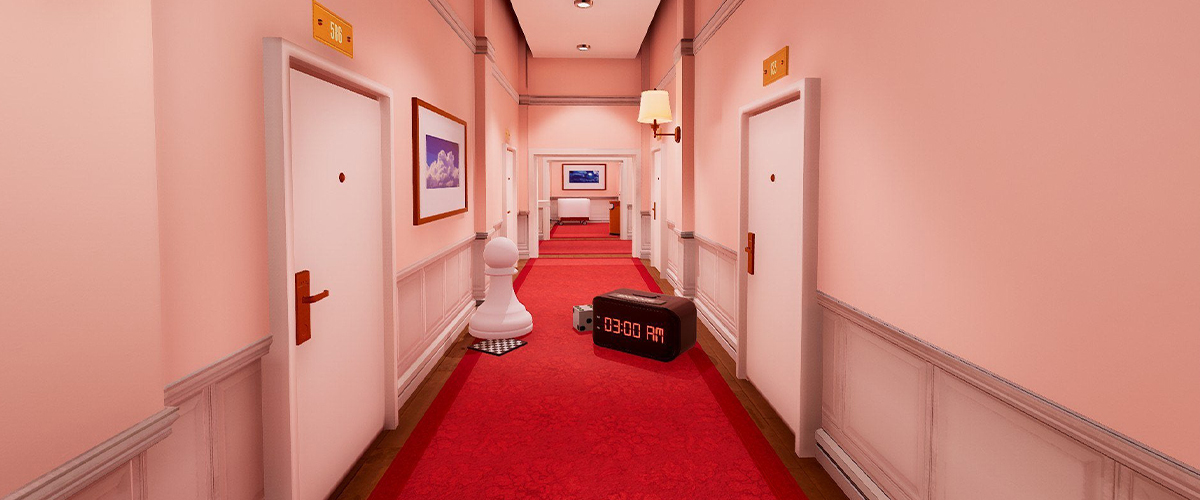Ever had dreams where you suddenly think you’re in control of everything, but not in the traditional sense? Like being granted the ability to control reality based on how you perceive things? That’s exactly the kind of experience Superliminal by indie developer Pillow Castle offers.
This game simulates players as a test subject going through a program that lets them enter a state of lucid dreaming. How this manifests is in the form of a first-person puzzler in the vein of the likes of Portal and The Stanley Parable. Like both titles, Superliminal forces players to examine problems in their entirety, and see how they can be approached with alternate methods rather than just head-on.
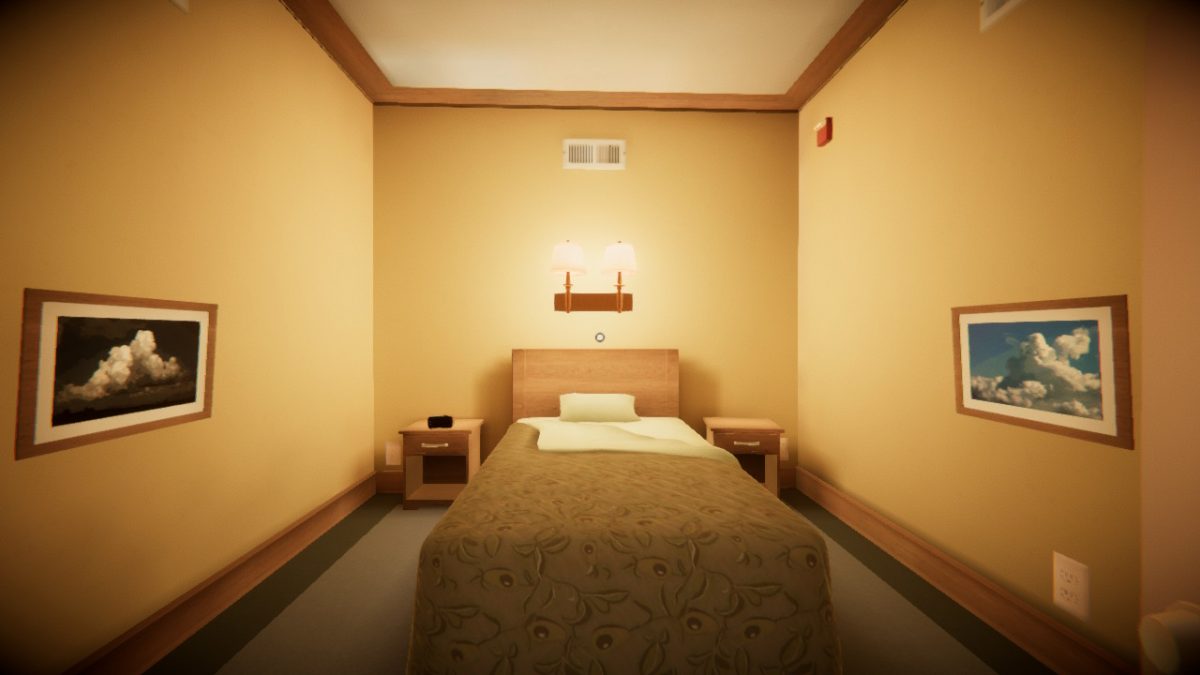
In Superliminal, perception is reality. That’s the mantra that is constantly embedded into you as you play through it. Within the first few minutes of the game, you’ll be able to see exactly why. If you’ve been raring for a mind-boggling experience for about 2-to-3 hours, you’re in luck because this one’s a doozy. For the most part, at least.
Essentially, players have the ability to alter the size of objects depending on where they place it. For example, a block can look like it can fit into your hand when holding it, but can resemble a small house after placing it at the end of the hall. This is the key gameplay mechanic, and will be your crutch as you progress through the entire game.
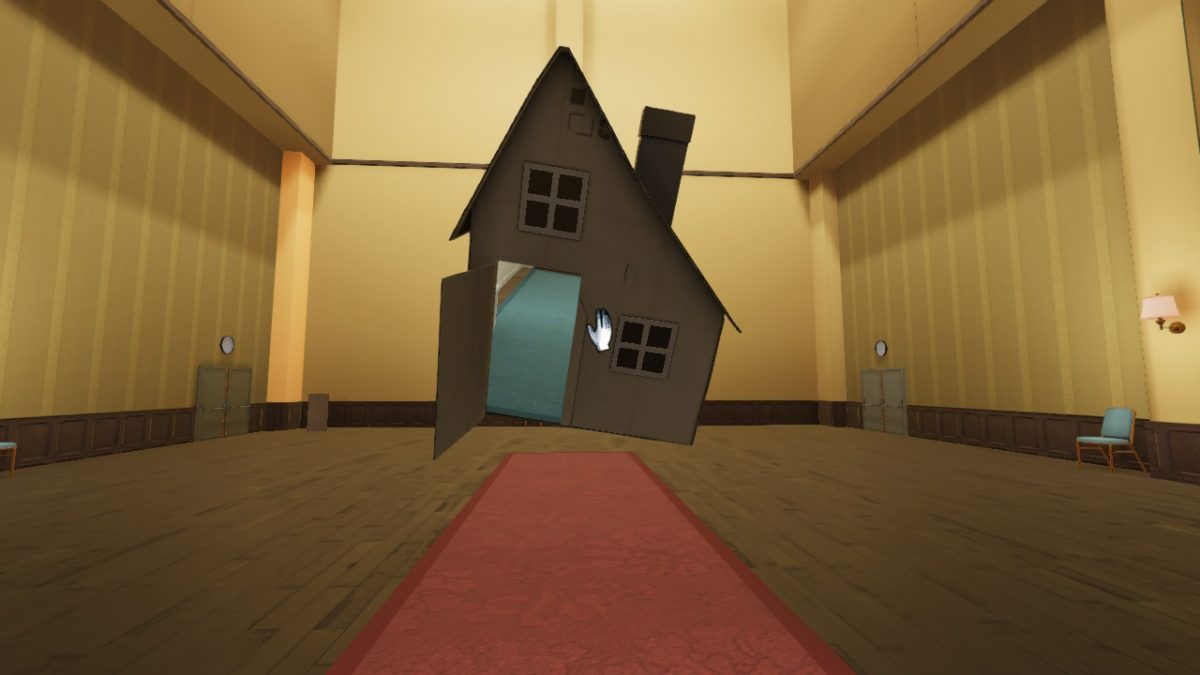
In later levels, you won’t just be simply altering the size of objects to jump from Point A to B; you might even have to alter the size of doors just to shrink yourself in order to enter passages that otherwise would not have been accessible. Other objects would have to be “unlocked” by standing at a certain angle before they can be used.
This is an interesting concept which keeps players on their toes mentally as they advance through each room, and the variety of challenges across levels is enough to keep one entertained while in-game. The level design is really quite interesting for the most part, with the solutions to each level generally more satisfying than the last. After a while of examining the entire area, it’s a matter of moving items or moving to the right area in order to unlock the next area.
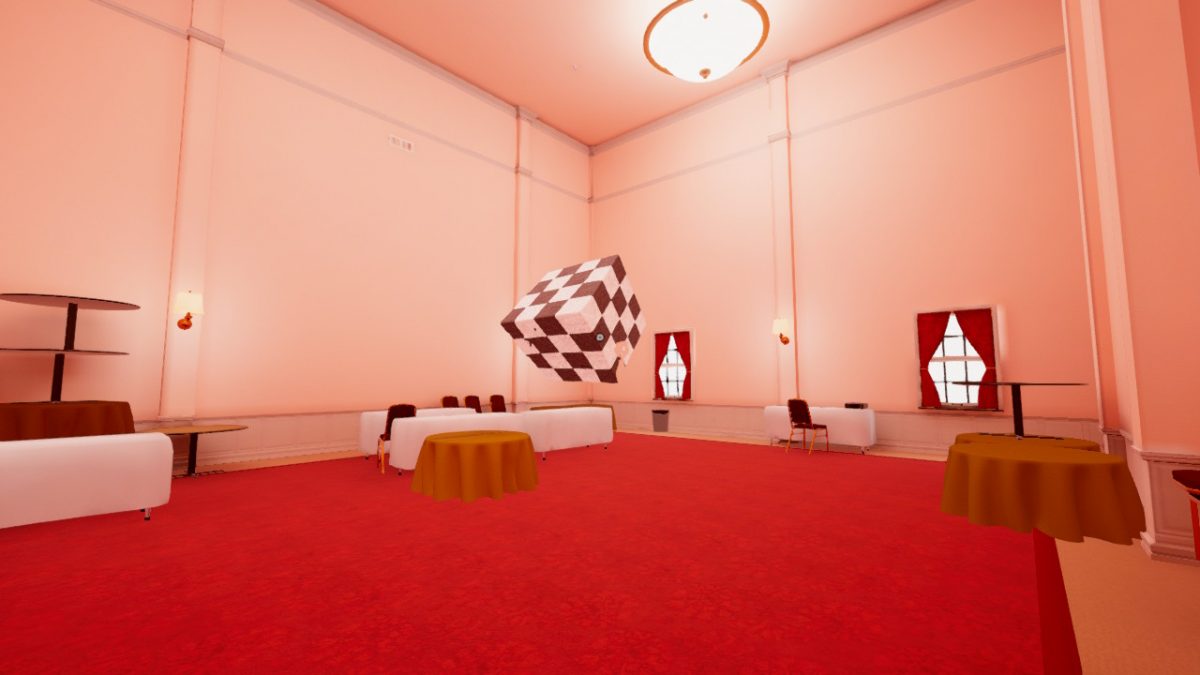
However, there is an inherent lack of player agency in individual levels themselves, as players have to approach them in a certain way in order to progress. It would’ve been more interesting (in the later levels, most especially) if various options were presented to the player in order to progress, such as different exits that alter what the next room could be, or various tools that can be used in any order in order to reach the next area. Additionally, some levels can be a tad too dark, especially when playing on the Nintendo Switch in handheld mode. It’s not that bad when playing in docked mode, but due to the relatively minimalist UI, it’s still a bit hard to make out the really small cursor in the middle.
Another eyebrow-raising issue includes a bug where if you resized yourself too small, you might disappear through the floor of the level, unable to jump back up simply due to the fact that you were too small. Pillow Castle’s concept, while interesting and thoroughly entertaining at times, lacks polish in this regard as the game engine has virtually no limit to just how small or large you can resize items, which could potentially cause issues like this to happen.
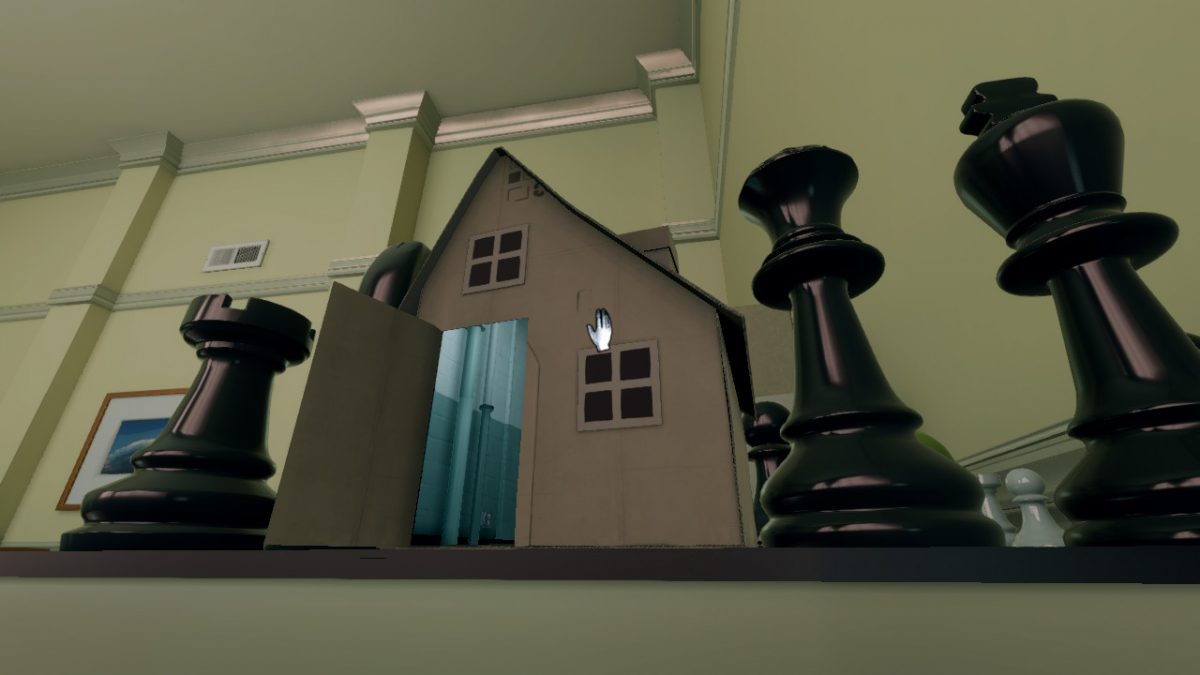
At present, the devs have yet to patch this gameplay issue, which can potentially frustrate as it might even force a reset to the previous checkpoint. Thankfully, the game’s autosave system is quite solid, which lets players return to the exact start of that particular section of the level they’re at.
The game’s experience can be divided into half in essence. The first half slowly integrates you into the game’s core mechanic and world, and the latter half essentially challenges the very mechanic you’ve been using and lets you experience what it would be like if it were altered, or even taken away from you. This is similar to what Valve did with the Portal games, as it forces players, most of whom might have gotten used to the core mechanics by about halfway through, and getting them to work with limitations. In a sense, it reflects the unpredictable nature of dreams, which is a brilliant way to present the theme.
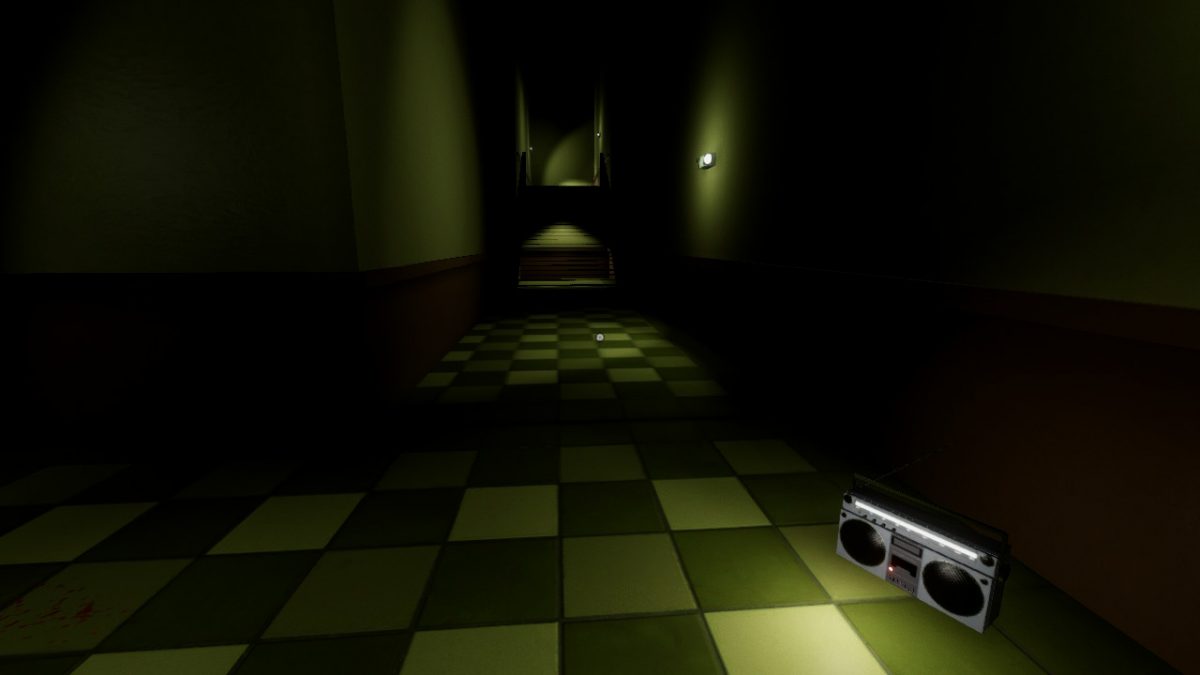
And like most dreams, the game’s tone is in a constant flux of whimsical and silly, and downright dark and unsettling, which the developers have captured quite well in the art style alone. The many long corridors players have to walk through a la The Shining evoke a sense of eerie curiosity, constantly sparking the urge to progress and just see what’s lying beyond the corner.
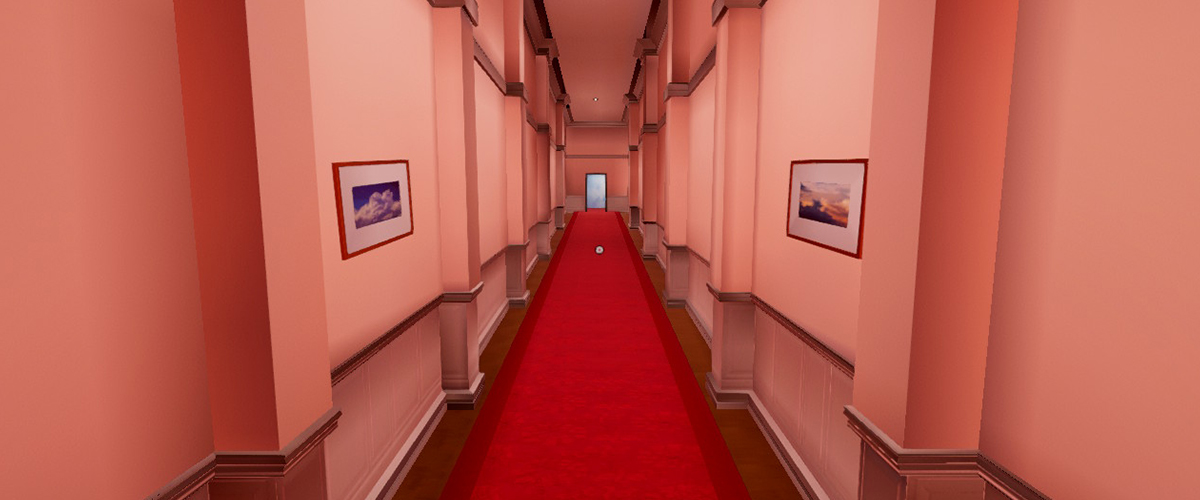
At its core, Superliminal puts to question just how one at times might be limiting themselves by now trying to see things in unusual ways. So far, the folks at Pillow Case have been convincing in its presentation of the game’s central question for the most part. It’s just a shame that this game is so short (we’re not kidding — it can be completed in just under 3 hours) and that it feels rather linear in terms of player agency, otherwise it would’ve been an even more wholesome experience than it already is.
GEEK REVIEW SCORE
Summary
A really short but ultimately cathartic experience, Superliminal challenges players to solve problems in the most satisfying of ways, and delivers a powerful message in doing so. For best results, we recommend that you play this game in one sitting.
Overall
8/10-
Gameplay - 8/10
8/10
-
Story - 9/10
9/10
-
Presentation - 8/10
8/10
-
Value - 7/10
7/10
User Review
( votes)Marion has a serious RPG addiction. Sometimes it bleeds into real life; he forgets to sleep because he thinks he has a Witcher’s body clock. Forgive him in advance if he suddenly blurts out terms such as “Mind Flayer” and “Magic Missile”, because never once does he stop thinking about his next Dungeons & Dragons game.

